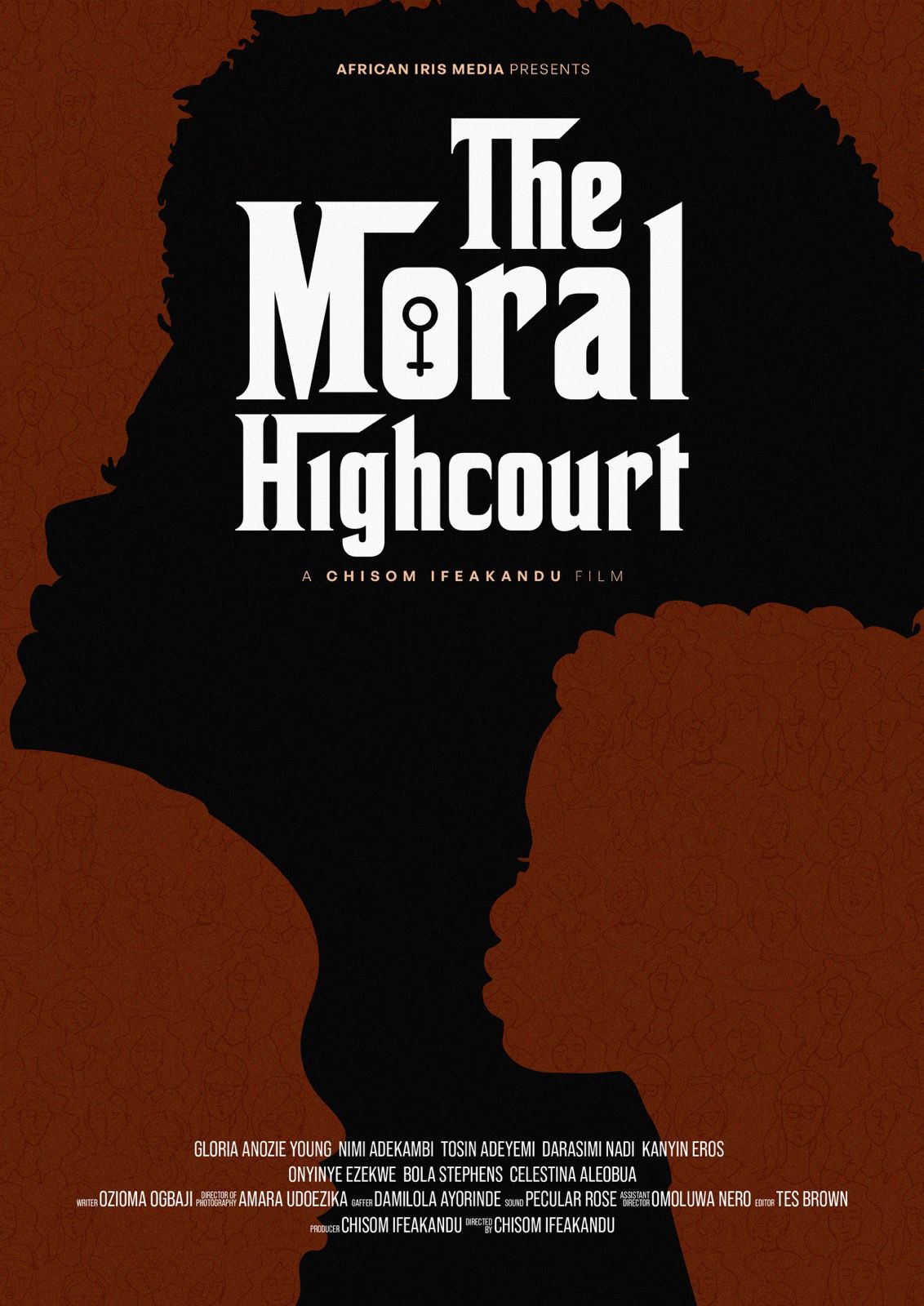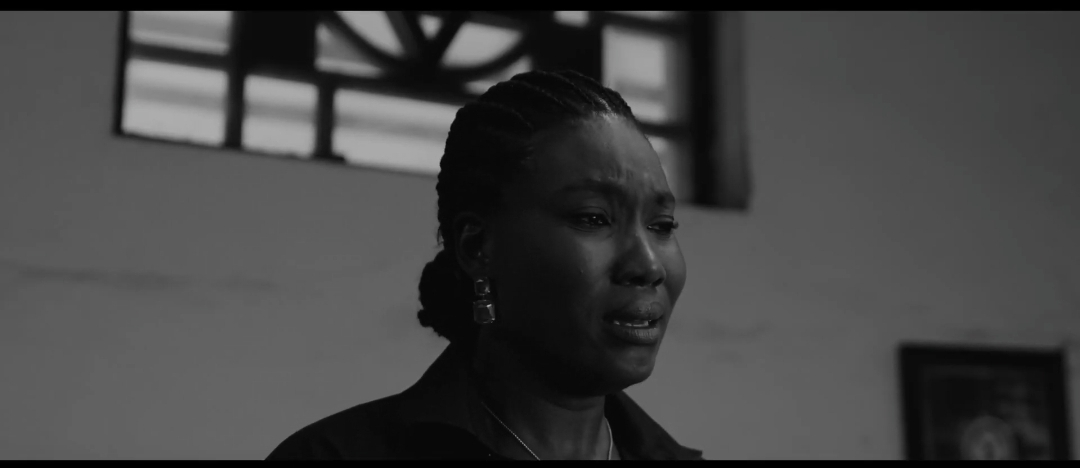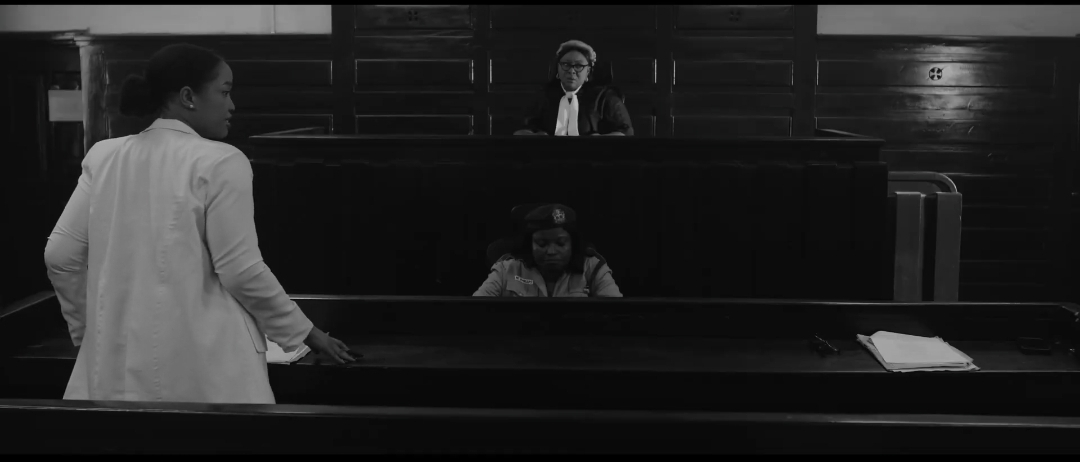What The Moral High Court does offer is sincerity: a brutal honesty about how Nigerian society, through its culture and silence, continues to fail its women.
By Joseph Jonathan
There’s something refreshing about a film that doesn’t waste time decorating its message with unnecessary fluff. The Moral High Court, directed by Chisom Ifeakandu and written by Ozioma Ogbaji, is that kind of film. It is simple, personable, and direct in its storytelling, yet weighty in its subject matter. In just 24 minutes, it reminds us of stories we’ve heard before—stories we’ve witnessed, perhaps even been complicit in—while daring to ask why justice remains elusive for so many Nigerian women.
Set entirely in a courtroom and rendered in striking black and white visuals, the film revolves around the testimonies of five Nigerian women: Oseka Abraham (Tosin Adeyemi), Jessica Essien (Adekanmbi Nimi), Demilade Adesina (Kanyin Eros), Chika Okeke (Celestina Aleobua), and Fatima Azeez (Darasimi Nadi).
These women tell different versions of the same story: one of systemic discrimination, injustice, and abuse, all perpetrated under the weight of patriarchal and misogynistic customs. From sexual harassment and rape, to disinheritance, widow maltreatment, and gender discrimination in leadership, The Moral High Court doesn’t just touch on these issues, it confronts them.

What makes the film most effective is its stripped-down approach. By setting the entire narrative in a single courtroom, Ifeakandu ensures that audiences have nowhere to look but directly into the pain of these women. There are no distractions, no subplots, no flashbacks, just the raw testimony of these women.
The choice of black and white works not just for aesthetic beauty, but also symbolically, echoing the binary nature of justice: right versus wrong, guilt versus innocence. Yet, the stories these women tell blur that binary, exposing how real-life injustice often hides in the grey areas of tradition, complicity, and silence.
While the acting across the board is decent, Tosin Adeyemi as Oseka Abraham stands out in particular. Her delivery is raw and layered with emotion. You can see the pain in her eyes and feel the weariness in her voice as she narrates her ordeal — not just the incident itself, but the betrayal by the very people who should have protected her.
On the other side of the courtroom sits Barrister Peters (Bola Stephen), the defense counsel, whose arguments embody the very patriarchy the film condemns. Her entire rhetoric, steeped in tradition, victim-blaming, and wilful ignorance, mirrors the real-life justifications used to silence women. It’s a performance that leaves you seething, precisely because it’s so recognisable. In her, we see everyday Nigerians who, knowingly or not, uphold the very systems that harm women.

However, if there’s a notable weakness, it’s the courtroom dialogue itself. For a film set in a legal environment, the arguments between counsels are surprisingly simplistic and, at times, unconvincing. It lacks the kind of intellectual or legal “fireworks” that one might expect from a courtroom drama. But perhaps that’s intentional. By avoiding jargon, the film allows the focus to remain on the women’s stories, making it accessible to viewers regardless of educational background. In that sense, The Moral High Court functions less as a “courtroom drama” and more as a communal reckoning.
The film hit close to home, as each of those women’s stories felt familiar, like echoes of the conversations I’ve had with my sister, friends, and classmates. Fatima Azeez’s gradual erasure of her childhood aspirations reminded me of how, even in universities today, it’s rare to see female student union presidents, not because women lack leadership ability, but because positions like that have been “traditionally” reserved for men.
Demilade Adesina’s account of harassment at the hands of her lecturer brought back memories of my undergraduate days when we warned female classmates to never visit a male lecturer’s office alone, as many of these so-called lecturers are predators waiting to take advantage of young, unassuming girls. These are not isolated experiences; they are patterns woven into the very fabric of Nigerian society.
If Citation (2020) by Kunle Afolayan explores sexual harassment in academia, and 4th Republic (2019) by Ishaya Bako highlights gender imbalance in politics, then The Moral High Court gathers these injustices in one room and puts them all on trial. It joins a growing catalogue of socially conscious Nigerian cinema, alongside films like Dry (2014), Widows’ Cot (2005), Wives on Strike (2016), and Heaven’s Hell (2019).

Where those films offer narratives with varying degrees of melodrama or commercial packaging, Ifeakandu’s short takes a minimalist, almost documentary-like approach, with the emotional weight resting squarely on the testimonies of its women.
The Moral High Court might not boast the polish of a big-budget Nollywood production, nor does it offer the intellectual fireworks of a Sorkin-esque courtroom drama. But what it does offer is sincerity: a brutal honesty about how Nigerian society, through its culture and silence, continues to fail its women. If the real courts won’t deliver justice, perhaps cinema can offer the trial that patriarchy deserves.
Rating: 2.7/5
Joseph Jonathan is a historian who seeks to understand how film shapes our cultural identity as a people. He believes that history is more about the future than the past. When he’s not writing about film, you can catch him listening to music or discussing politics. He tweets @JosieJp3.




